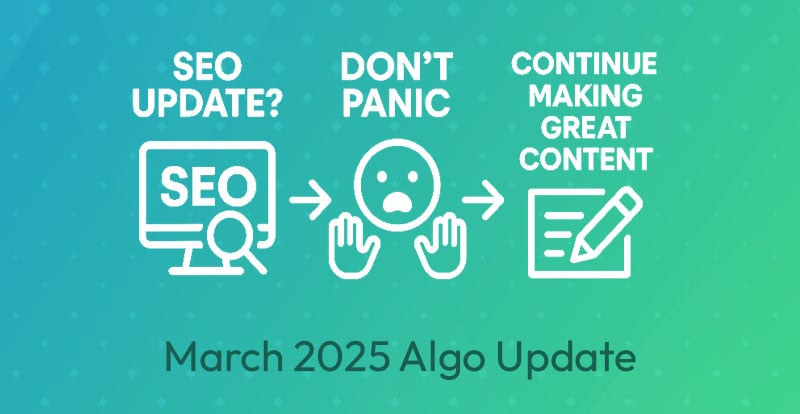If you’ve noticed a drop—or spike—in your website traffic over the past month, you’re not alone. Google rolled out a major core update starting on March 5, 2025, and finished around the end of the month. It’s one of the most significant updates we've seen in a while, especially for small business websites.
I’ve been doing SEO for a long time, and if there’s one thing I’ve learned, it’s this: don’t panic. Google’s algorithm updates tend to shake things up, but the core of what works hasn’t changed.
Let’s dig into what this update was about and what small businesses should be paying attention to.
What Changed in Google’s March 2025 Core Update
This update was part of a broader effort from Google to clean up search results and prioritize genuinely helpful content. A few key things changed:
-
Content quality filters got stricter. Google is getting better at identifying thin or unhelpful content—especially stuff that’s mass-produced or clearly made just for rankings.
-
AI-generated content is under the microscope. Google’s not banning AI content, but if it’s generic, repetitive, or clearly not written for a human audience, it’s going to have a harder time ranking.
-
Forums and user-generated content are being reevaluated. Some of this content is ranking higher, especially when it contains real answers from real people. That’s great news for helpful blog comments, Q&A pages, and community sites—but only if the info is solid.
What Small Businesses Are Seeing
Local business sites, especially those with templated service pages or low-effort blog posts, were hit the hardest. This includes:
-
Sites using AI to churn out generic articles.
-
Researching stuff?
We make some damn good websites.
Hit Us UpPages targeting every nearby town with duplicate copy and swapped city names.
-
Businesses relying too heavily on backlinks without improving the content on their actual pages.
Some sites did see improvements—mainly those with unique, useful, and locally-relevant content.
What You Should Be Doing Right Now
Here’s the thing: my advice for SEO hasn’t changed because Google’s goals haven’t changed. They want to serve up high-quality, relevant, and useful results to their users. That means your website needs to:
1. Focus on Useful, Well-Written Content
Write pages and blog posts that answer real questions your audience has. That means:
-
Explaining your services clearly.
-
Writing blog posts that aren’t fluff.
-
Avoiding AI content unless you’re editing it heavily and adding your expertise.
2. Make It Easy to Navigate and Read
User experience matters. If your website is clunky, slow, or confusing, people leave. That hurts your rankings. Make sure:
-
It loads fast on mobile.
-
Your headlines make sense.
-
It’s clear what your business does from the second someone lands.
3. Local Relevance Still Wins
For small businesses, local SEO is your best friend. Keep your Google Business Profile updated, get reviews, and make sure your name, address, and phone number are consistent across the web. Also:
-
Use location-specific content that isn’t copy-pasted.
-
Include FAQs your real customers ask.
-
Show examples of your work in your area.
4. Review What’s Working (and What’s Not)
Keep an eye on your analytics. If traffic to a key service page dropped, look at:
-
Does the content still match the keyword intent?
-
Is it better or worse than the competition?
-
Does it feel thin, generic, or outdated?



